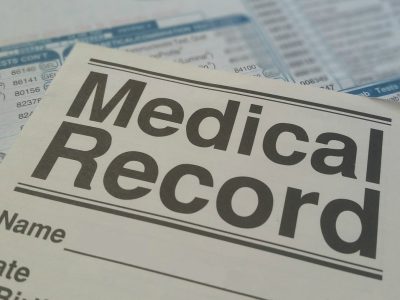After enduring a personal injury accident, you will likely have added expenses that strain your monthly budget. When you’ve been hurt because someone else was negligent, you should hold them accountable for paying your compensation to cover these added costs you’ve incurred.
You’ll likely have expenses that go beyond your medical bills, though one of the key factors for a successful personal injury case is showing that you were injured in an accident caused by someone else’s negligence. The importance of having thorough medical records for your personal injury case cannot be overstated, for supplying detailed records holds the key to getting the full amount of compensation you deserve.
For help with your personal injury case, contact Angel Reyes & Associates.
Why Are Medical Records Important in Your Personal Injury Case?
The main purpose of your medical records in a personal injury case is to provide a direct link between the injuries you’ve sustained and the accident. Medical records can document the type and severity of your injuries and detail how they were caused.
Causation is one of the elements that must be present when seeking compensation for a personal injury. It shows that the negligent actions of another person directly caused you to become injured, allowing you to hold them accountable under personal injury law.
Here is how medical records are applied in a personal injury case.
Determines the Extent of Your Damages
When you have comprehensive medical records, they can help assess the entire extent of your damages. Medical records are not only used for determining how much you’ve had to spend to get the treatments you need to recover but also for assessing future medical needs from this injury. You may need rehabilitation, additional surgeries, or assistive medical devices. These records are instrumental in seeking compensation for past medical bills and any anticipated future medical expenses to provide a fair sum that covers these costs.
Shows the Severity of Your Pain and Suffering
In addition to medical bills and other economic damages, you should be able to claim pain and suffering, which is part of non-economic damages. These are more challenging to prove since they are intangible, though detailed medical records can show that the physical injury you’ve endured has also left an emotional impact. Your medical records may provide details on how much pain you’ve experienced, how these injuries have affected your daily life, and how your injuries have caused mental health issues.
Proof of Your Injuries from This Accident
It is common for the defendant’s team to try to claim that your injuries were either unrelated to this accident or the result of a pre-existing condition. When you have thorough medical records, it is much more difficult for them to try these tactics.
Strengthen Your Credibility in Your Case
When you have well-organized medical records that document your comprehensive care for your injuries, it shows that you’re not making things up. It stands to reason that if you’ve been injured by the negligence of another, you will seek medical care and follow doctors’ orders to recover. Your medical records enhance your credibility and make it much more likely that you will get the full and fair amount of compensation in your case.
Types of Medical Records You May Need to Present for Your Personal Injury Case
While your attorney will likely let you know exactly what you need for your medical records in a case, it helps to stay organized from the start. Create a file or folder devoted to organizing any of the following types of medical records to back up your injury claim.
Emergency Room and Hospitalization Records
If you were taken by ambulance to the emergency room, or even if you got there on your own, make sure you include these records. They will document your initial injuries and the treatment you received. Your injuries may have been severe, which would also mean you’d be admitted to the hospital for a certain period. These records can provide details about the treatment you received during your stay.
Imaging Reports
When you’re in a serious accident, it is common for medical professionals to order imaging tests. These are to check for internal damage, broken bones, and soft tissue injuries. Your records should include any MRIs, CT scans, and X-rays you received, which will also detail the findings.
Surgical Reports
After a major accident, surgery may be required to stabilize a serious injury. If you had any surgeries performed, these reports will detail the type of surgery, the injury discovered, and the outcome of this procedure.
Follow-Up Notes from Doctors
The doctors treating you will issue updates on your symptoms and progress. They will also make notes about any additional treatments that are required to help you improve. You should keep these records to present in your case while also ensuring you follow up with what is recommended by those in charge of your medical care.
Medication Records
When you are issued medications, you should keep detailed documentation on anything you have been prescribed. If you were given painkillers, you should make sure you take them as prescribed for the full duration of the prescription, even if you start feeling better. Any other medications prescribed to help you with your injury should also be documented.
Rehabilitation Records
Some injuries will require the need for physical therapy and rehabilitative treatments. If you need these treatments, you should present your records for the exercises required and the progress you have made.
Mental Health Records
Many physical injuries after an accident take a toll on mental health. Your doctors may have referred you to a mental health therapist to help you with these impacts. You will want to present these records as they can help you prove your level of pain and suffering.
Bills and Receipts
When involved in a personal injury case, it is vital to keep copies of every single medical bill you receive. Organize them into separate files for bills that you have already paid as well as outstanding bills. Document everything to be on the safe side and ensure you get the full amount you deserve in your settlement.



